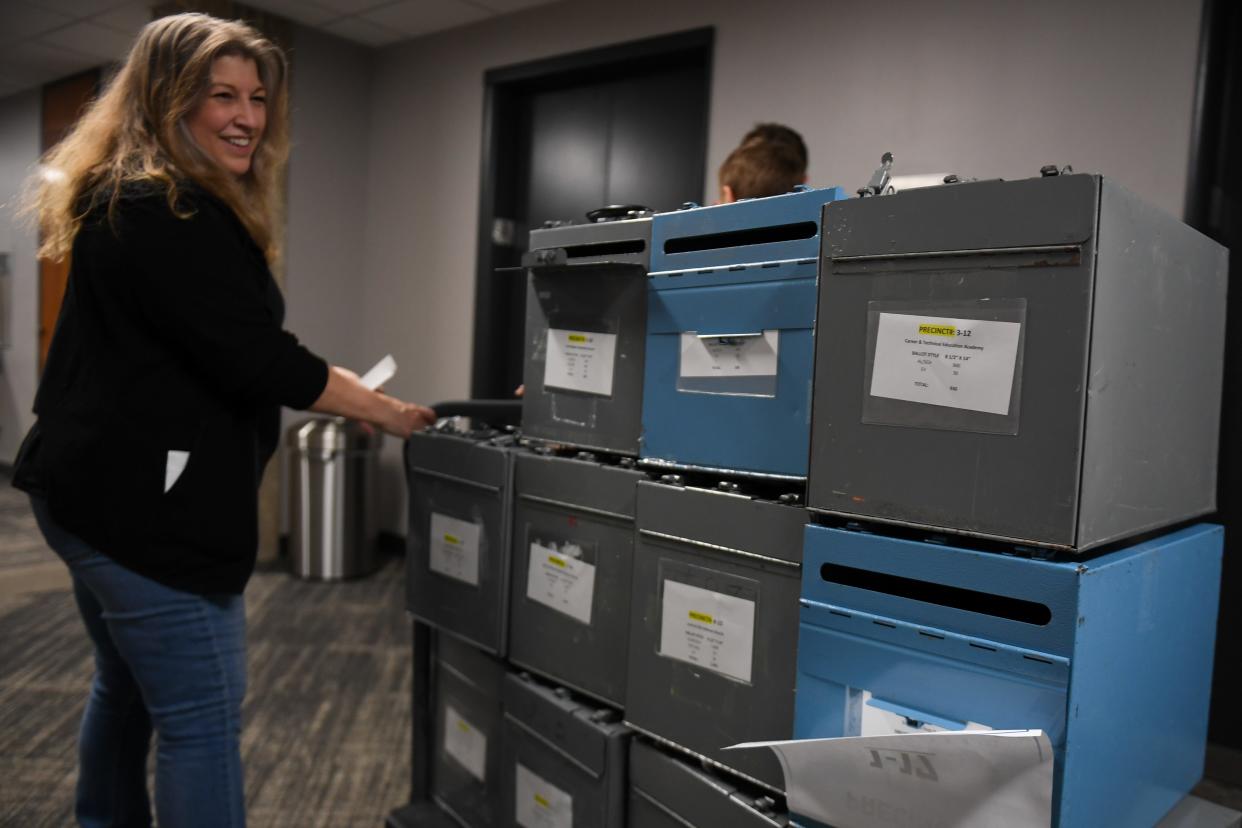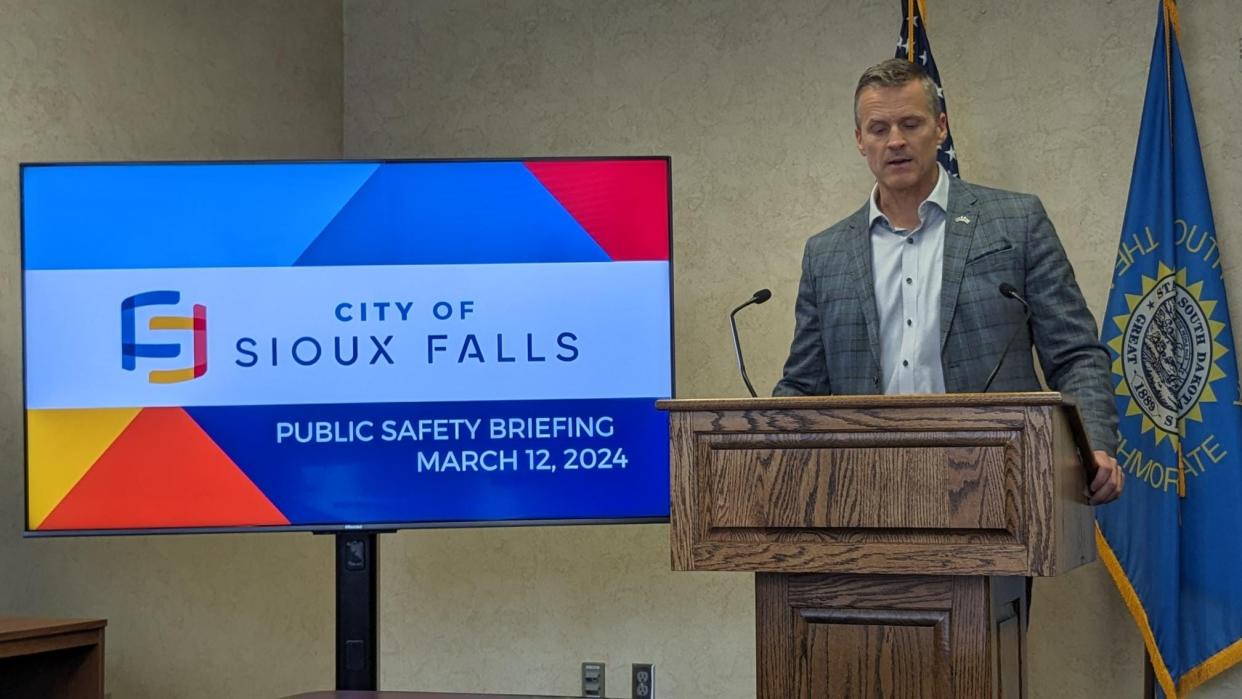Mayor TenHaken says moving Sioux Falls elections to June could get more people to the polls

Abysmal. Discouraging. Embarrassing. Terrible.
Those are some of the words Mayor Paul TenHaken has used in recent weeks to describe the 7.7% voter turnout the city of Sioux Falls saw in its April 9 municipal election.
And that number is enough for TenHaken to say that there should be serious thought put into moving the city's elections to coincide with the state's June primary elections.
“The fact that such a small amount of people care enough to vote on that is really discouraging," TenHaken said in a recent interview about the election's low turnout.
It's not exactly a new problem. Since 2000, non-mayoral city elections have seen turnout between 11-15%. But 7.7% was a new low, literally and figuratively.
More: Thomason, Deffenbaugh head to runoff in At-Large C race as Basye wins in Northeast
TenHaken said there were a few factors he believed could be driving voter apathy, starting with people's frustration with the polarized state of national politics, which he said could "ripple downward" into more local races. He added that the fragmented state of digital and social media made it harder to reach out to potential voters.
And of course, the April 9 election featured not one, but two races in which only a single candidate was running, which could have driven some lack of interest in the Northwest and Southwest districts, even with an At-Large and school board race still on the ballot.
Asked if local government should be doing more to encourage voter turnout, he said he wasn't sure it was the government's responsibility to tell people when and where to vote, saying that to some degree people needed to choose to "participate in their community."

When he was first elected — in a race with 30.50% turnout — TenHaken said he was convinced that local elections should be moved, maybe even to align with the national elections in November. Turnout would skyrocket comparatively, he thought.
But he said eventually he pivoted away from that, thinking that while 7.7% of voters is a small number, it's probably mostly made up of people who know who's on the ballot and are making an informed decision.
More: Former city council candidate endorses Richard Thomason for At-Large C seat
Move that election to November, and you're running into a "cluttered political landscape" where a local candidate's message could get lost, he said. Even if you're now getting 50% turnout for a city election, he asked, how many of those people know who these council candidates are?
That's why he sees the June primaries as the ideal outcome. And you don't have to look far to see some evidence that the idea would work — when the COVID-19 pandemic pushed the city's 2020 election to the same date as the June primary, the turnout was 25.92%.
Once the April 30 runoff election passes, TenHaken said, he wants to look at "the pros and cons of moving this," something that he said could come as early as the 2026 municipal elections.
The two candidates in that runoff election are doing their best to get more voters out as well. Richard Thomason and Jordan Deffenbaugh agreed that moving the election could increase turnout, but they had their own thoughts on the process.
Thomason said he'd like to see city elections moved to November, adding he thought the June date could work but that general elections were simpler.
He said he understood concerns of how a city councilor could get their message seen past, say, a John Thune reelection campaign. "But," he added, "people will be at the polls."
Deffenbaugh, on the other hand, said there needed to be significantly more municipal involvement in getting people out to vote. "There's so much blame upon the citizen in the process," he said, adding the "laissez-faire" approach is what led to the low turnout.
"I think this is a showcase of the fact that the voting base doesn't feel engaged by their government," Deffenbaugh said.
And while he said that moving the election would likely increase that engagement — and save resources — he said a benefit of having a separate municipal election was keeping it away from the "sports team politics structure" of the primaries and general elections.
This article originally appeared on Sioux Falls Argus Leader: TenHaken says moving Sioux Falls elections could increase turnout






